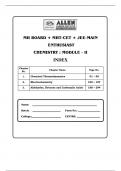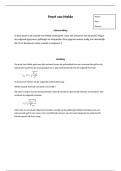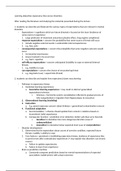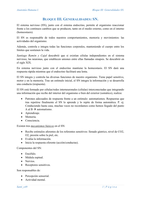Interview
Chemistry notes
- Vak
- Instelling
Enthuse Chemistry notes from Allen Kota (Allen Career Institute) for IIT JEE, JEE Main and NEET aspirants. The pdf Contains 3 chapters: 1. Chemical Thermodynamics 2.Electrochemistry 3.Aldehydes, Ketones and Carboxylic Acids This pdf provides in depth knowledge about the following chapters and a...
[Meer zien]








